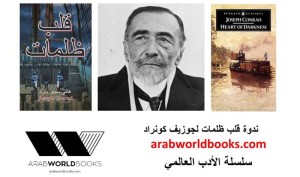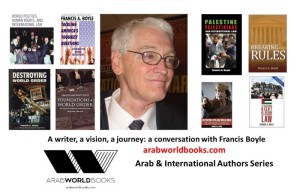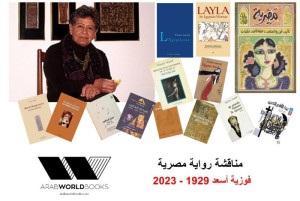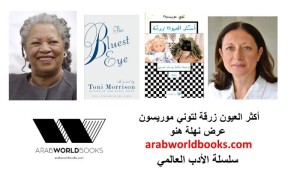Interview with Rhiannon Brown and presented by Ramona Koval
With kind permission from The Book Show - ABC Radio National Australia.
Ramona Koval: Earlier this week we replayed my interview with the winner of the just announced 2006 international IMPAC Dublin literary prize, Irish writer Colm Toibin. Today we hear from the man who won the world's richest literary prize in 2004, Tahar Ben Jelloun, for his heart-wrenching story about a prisoner who was subjected to 20 years underground in one of the world's most notorious prisons.
Tahar Ben Jelloun was born in Fez, Morocco, in 1944. As a young man, he was imprisoned for 18 months by King Hassan II of Morocco for being a student radical. Shortly after, in 1971, he emigrated to France, where he made his mark as a journalist with Le Monde, a newspaper he still writes for today. He first achieved acclaim as a novelist when he published The Sand Child and its 1987 Prix Goncourt award-winning sequel, The Sacred Night, about a Moroccan girl raised as a boy by her father in order to maintain his prestige and property.
A powerful storyteller, Ben Jelloun is also a writer of social and moral acuteness and his taking on of taboo subjects has sometimes got him into trouble. That's what happened in 2001 when he published This Blinding Absence of Light, which tells the story of the desert prison Tazmamart, in which King Hassan held his political enemies. In his book, Ben Jelloun relates the story of one of the survivors, Aziz, who was imprisoned for twenty years along with 60 others in an airless, lightless, underground cell.
Immediately successful, the book gave voice to an almost forgotten atrocity committed by the father of the present Moroccan king, Mohammed VI. But things soon turned sour for Ben Jelloun when the former prisoner rejected all association with the novel, a blow which continues to haunt Ben Jelloun to this day.
Some of the themes in this dark hymn have carried over into Ben Jelloun's latest work to be published in English, The Last Friend, which portrays social and political unrest in Morocco through the long friendship between two men, and which ends in an act of betrayal.
Rhiannon Brown was in France recently, where she had the opportunity to meet with Tahar Ben Jelloun in his studio on the Boulevard St Germain.
Rhiannon Brown: Tahar Ben Jelloun, welcome to The Book Show. Your book This Blinding Absence of Light is based on a true story. Please tell me how you came to write this novel and meet the real person upon whom it is based? Can you tell me a little bit about that?
Tahar Ben Jelloun: I wrote the book because I was asked to write it. In some ways it's silly to say that because of course writers can't write to order. But what happened is that I met the prisoner, at the time I knew one of his brothers, and I was impressed by the silence of this character, he said nothing, he hardly spoke except to say a few words about what he'd been through. And then his brother, who has introduced us, told me that he hoped one day to write something with his brother. One year later, he came to see me and said, 'Look, we've thought about this and we'd like to ask you to write this book about what happened'. I said, 'No, I didn't experience what your bother went through, it's up to
him to do it.' But I ended up saying yes and agreeing to do it. So then I went and saw the prisoner at his home in Marrakech. We spent three hours talking together and I took some notes, and we agreed on two things; one, that I write a fictional novel and not a testimonial account, and secondly, that he would be paid like me and that he would have the same rights as me.
So that was all and after that I didn't see him again. I went off and started work on the book, and wrote over four months, day and night, in a feverish state as if I was ill because I completely identified with this character, imagining all the possibilities of what it must have been like living through that hell. I remember I started writing in January and I finished the book in May.
Rhiannon Brown: Apart from being a book about resistance and hope, it's also an incredible story about storytelling and the power of storytelling, and in fact the prisoner survives by being the storyteller in the group, and he is incredibly intellectually active and that's part of his survival. So how important are words for the prisoner's spirit and also for yourself?
Tahar Ben Jelloun: That's really my task as a novelist. I put myself in the prisoner's place and ask myself, how could one survive such prolonged suffering and torture if it were not for words and for stories. And I do think that we can survive by imagining and by telling each other stories. So I asked myself, how is it that these people pass their time, given that each of them was locked up in their own separate cell, in complete darkness without any light at all? As a writer, I had to try and imagine that, and so I imagined them playing cards in the dark, without seeing, and I imagined that my character would be an intellectual, someone who had read a lot, seen a lot of films, and who could draw on these stories and retell them. Obviously I invented this character, I don't know if someone like that existed or not, but for me I felt that it was with words and images it would perhaps be the only way of resisting the absurd. And, alongside words; faith. I wanted to demonstrate that the spirit is stronger than physical brutality.
Rhiannon Brown: Yes, because in fact the character in the book, he is deprived of all human contact, and light...when they are given it on the rare occasion when somebody in the group dies, they go outside to bury the body, but that light becomes unbearable. Can you talk to me a little bit about that?
Tahar Ben Jelloun: I don't know if it was actually like that or, again, if it's something I invented. I imagined a universe which was...infernal. I tried to imagine what it would be like to experience that hell. I asked myself, what is hell? According to the teachings of religion, hell is the interminable suffering and pain, and that's what it was like for them in there, except that in religious hell there is no remission, there's no return. Perhaps in their hell there was some resistance. And so I imagined a world without light in all senses of the word, because light doesn't only enable us to see but it also enables the body to breathe, for the body to bathe in and be caressed by the natural light coming from the sky.
So it's a way of us killing using every means available; we kill them by locking them up, we prevented them from eating properly, we didn't treat them when they were sick, and we kill them by preventing light to enter and touch their skin. So that's what I imagined, but I'm sure what they lived was even worse. I never set out to write a realist novel, or to provide a virtual account of what happened. Those sorts of books-testimonial accounts and so on-came out later, but my aim was to write a
book that went beyond Morocco itself, and which went beyond the precise details of Tazmamart. My aim was to talk about a situation in which any human being, be they Cambodian, African or European, might have lived or could find themselves in one day. That's what interested me. I didn't write the book from the point of view of an historian or sociologist, it's not a history book, it's a work of literature.
Rhiannon Brown: The book This Blinding Absence of Light provoked enormous criticism in both Morocco and France when it was published back in 2001, the thrust being that you should have written about this prison Tazmamart sooner. Can you take us back to that time and explain what happened? Why you were so criticised?
Tahar Ben Jelloun: It has to be said that this book provoked enormous debate when it came out, on all sides. I was at the centre of all the attacks. I was standing right in the middle and shots were being fired from all sides. From the extreme left, from the right, from the French and from the Moroccans. Because, as someone told me at the time, what's bad about this book is that it is a fiction. It's not a testimony. Why fiction? I think that when I wrote the book, I wasn't at all conscious of that problem. What interested me was to write. But while I was writing the book, there were people who contacted me advising me not to write it. Drop it, they said, it's a subject best left alone, best forgotten.
I was not aware of the risks I was taking, and I was taking many. I think the first risk was to have written something very delicate and to have written it after it happened not while it was happening. But I have my reasons for that...it was me who was contacted by them and asked to write it, and as I mentioned, I had a contract with the prisoner.
If I was a more prudent man, if I had been smarter, I wouldn't have written this book. But at the same time I don't regret having written it, because actually I think it's the best thing I've done. What happened afterwards was terrible. First of all, I was terribly shocked by the prisoner's reaction, because when I finished writing the book, I sent it to him, even before I'd sent it to my editor.
Twenty-four hours later I received a magnificent letter from him in which he said it was almost
as if I was there in the prison with them. He said it was a masterpiece, and so on. And it's at this point that we brought him to Paris. He visited my editor with me, we drew up the contract, and he received a cheque for 400,000 francs, about $US80,000 and he was very happy.
Then the book came out January 4, 2001 and all of the press...I mean, all the press talked about this most amazing, incredible book. In other words, it was extremely well received when it was published. It was released on a Friday, and the Monday after, I started receiving calls from journalists asking me, 'How do you respond to the prisoner who has now released a letter saying that you two never met each other, that he never wanted you to write this book, that you forced him, that you went to his house and stole documents from him?' and on it went. Of course I couldn't believe it. I had just signed a contract with him, I had his letter telling me how fantastic he thought the book was, and yes, I had of course been to his house and even had photos taken with him because we happened to be with a photographer at one time who took some shots of us. The journalists said that the prisoner was insisting that I had completely abused him. It was terrible, absolutely terrible. And it was very, very difficult to fight against this because the French press, especially that of the left, weighed up these words, the words of a victim who had suffered 18 years of total torture and the words of a writer who
happens to have his office on Boulevard St Germain. That's what they wrote. And they said, well, of course we're going to believe the prisoner, not the intellectual. Nobody wanted to believe me.
Rhiannon Brown: Why do you think the prisoner did such an about-face? Why did he want to discredit you?
Tahar Ben Jelloun: Why did the prisoner change his mind? Because he was under pressure. His father still worked for the Royal Palace. He had a brother working for the Palace library. He had a brother who was working as a diplomat. So what he wanted to say was, 'This has got nothing to do with me. I never wanted this book to be written.' That's to say, he rejected me, he sold me off, in order to have peace. But, to my mind, he made a mistake in doing that because the press lashed out at me, saying, 'Yes, you're not a courageous writer, you should have written the book 20, 15 years ago.' The press was horrible and unjust. The Moroccan press took it up, as did the international press and I couldn't defend myself because when I sent them the documents to prove myself, they didn't publish them. That was the problem. And I had friends at this stage who stopped calling me, Moroccan friends, because they were afraid, afraid that I'd dared to write this book. And the person who saved me in
the end, who put an end to all the controversy, was the King. King Mohammed VI. Extraordinary!
Rhiannon Brown: The King actually came out and congratulated you about the book, didn't he?
Tahar Ben Jelloun: He didn't thank me, he did something even better. He invited me to dinner in front of everyone. In the month of July there was a party, and I was invited, he received me, and we spoke together a little a bit. And from the moment people saw, on television, that the King had received me, my friends started calling me again.
Rhiannon Brown: It's incredible that it was the son of King Hassan II who was to publicly show acceptance and support of your book, despite the fact that your book was exposing some of the worst aspects of his father's regime.
Tahar Ben Jelloun: Yes, and people were afraid because there were still people in Morocco who participated in the torture that went on in Tazmamart who are still around today, who are responsible for what happened to the prisoners, who probably agitated to have the book stopped. But I do want to say that this is one of the books that I would defend the most, given how much it made me suffer. And I have to say that I am very happy that it won the IMPAC prize because that tells me there is
justice after all. But in the wake of this book I was really affected by the suffering which is brought on by an act of betrayal. So I wrote a novella about betrayal and I also wrote the novel The Last Friend which is also about a brutal rupture and about betrayal. The story is invented, but there's me in both characters in fact.
Rhiannon Brown: So if I just explain to the listeners, The Last Friend is the story of a friendship between Ali and Mamed which starts in school and ends in an inexplicable act of betrayal 30 years later. Not only does it echo incidents in your own life such as being interned in a military boot camp when you were a young man in Morocco, but it picks up on themes that are in many of your novels, so we'll talk about some of those. But I guess first just if you could tell us how you came to write this novel? You said it's based on a real friendship of your own.
Tahar Ben Jelloun: It's a story which takes place in the 60s and 70s, so that's the social context of this novel-a Morocco which has not had its social and sexual liberation, for whom sexuality still held an
element of revulsion and a hypocrisy, that is whereby sexuality was consumed but in hiding. And there's the story of the army's disciplinary boot camp. That's something I experienced. When I was a student, I was interned with other militant leftists, and we were put in a boot camp as our punishment because we were agitators and opposed to King Hassan II. And during 18 months we suffered, we were permanently maltreated. In fact, they gave me a very real and very physical first hand experience of repression and injustice at the age of 22, and it shook me and marked me enormously. And I wanted to write about it one day, which is what I did here.
As for the story in the book, it's not clear to me if it's a real betrayal or not because it stays hypothetical. I don't know if the character who's going to die and decides not to see his friend anymore is doing it out of kindness or meanness, if he does it out of generosity or jealousy. It remains a question which I keep asking myself...that's to say that even between the greatest of friends or the greatest of loves, there can be a moment where one asks where is this generosity going, could it turn into jealousy, can there be a moment where he who is sick and going to die asks why is it that my friend who I've lived side by side with all my life is going to keep living while I am going to die? Or,
why would I want to see someone who loves me so much and is so sad, and who's face is only going to reflect all my own distress and my mortality? That is to say, we don't always want our best friends to accompany us and be part of the final voyage, so to speak. I don't know if that's how I would react in the same situation but, none the less, I understand it.
Rhiannon Brown: Also in the book...I should say that when the wives enter the frame they're quite mistrustful of the bond between the two men. Ali becomes a teacher and lives a petit bourgeois existence. Mamed, the doctor, he emigrates to Sweden where he works for the World Health Organisation, and you write, 'Friendship becomes more essential and less part of everyday life.' And then out of the blue Mamed just rejects Ali, almost like a lover.
Tahar Ben Jelloun: The rejection is ambiguous and can't be explained in a rational manner. I knew of a similar story a long time ago, a story of a famous French journalist who was very attached and a really close friend of a very famous professor of medicine, and they wrote a book together about cancer, one as a journalist, the other as a medical specialist, and they were great friends. The day the journalist fell sick it was his best friend, the doctor, who gave him the news that he had cancer, and I learned that the journalist decided never to see his friend again. This, of course, caused the doctor enormous suffering because he didn't understand why his best friend was rejecting him. And I think he
rejected him because, like in my novel, there was envy and jealousy involved there somewhere, and I also don't think he wanted his best friend to see him deteriorate. I was inspired by that true story and adapted it for my own novel.
Rhiannon Brown: Yes, there's a line where you say, 'Jealousy is a banal sentiment. We just need to understand it and not be surprised when it bursts into flame.'
Tahar Ben Jelloun: Yes, it's a banal, ordinary sentiment. But jealousy doesn't explain everything. Things are often more complicated. Jealousy, when it comes to sexual relations, is classic, but there can be
jealousy between writers, between artists, between professionals. Jealousy is not uniquely the fact of possessing someone else sexually, it can be the act of taking something from someone. In my own life I have always tried to fight against that sentiment. I detest it. I find it a useless sentiment. It brings nothing, it only destroys. Jealousy is the expression of a personal weakness, of a lack. If somebody writes a great book, I tell myself to applaud them. If another writer wins a literary award, I try to feel good for them. I've worked hard so that jealousy is not something that's part of my life. Sometimes, of course, I don't succeed.
Rhiannon Brown: If we could just talk briefly about your Islam Explained which you published in 2002, the starting point of which was your ten-year-old daughter watching events unfolding after September 11, announcing that she didn't want to be Muslim anymore. Is that what she really said?
Tahar Ben Jelloun: No, it was the reaction of a little girl. But there was something to her reaction because the way in which the Islam and Arab worlds are presented in the West scares children. The racism that was let loose after September 11 and particularly the politics of Bush has been criminal...criminal. There were even Indian Sikhs who were assassinated in New York after September 11 because people thought they were Arab. So yes, my daughter had that reaction but it was spontaneous and superficial and it passed quite quickly, but it did alert me to the gravity of the problem. As for me, I'm not a believer as such, I'm not religious, and I am certainly not trying to encourage people to become Muslims, but what I wanted to explain was the origins of Islam and the
origins of the Arabs, and to write about these subjects objectively.
Rhiannon Brown: So it was your own decision to write this book then, it wasn't that you were asked by somebody else or by your publisher?
Tahar Ben Jelloun: Yes, absolutely. I decided the morning after that I absolutely had to write this book in order to explain things to my daughter, and as I had written a similar book on racism, I decided to do another on Islam. I also told myself that one day I have to stop writing explanatory books, otherwise I will become a specialist of explanations. So, I decided to write the book. It was published in several countries and I'm not sure if it's been useful or not but what's amusing is that recently when those Danish cartoons were published, my Danish editor, who had already published my book on Islam, republished the book a second time. If ever there was a time to re-read the book, it was now. I
think what characterises the West more than anything else perhaps, vis a vis the Muslim and Arab world, is ignorance. And they don't try to learn more either.
Tahar Ben Jelloun: In writing the book, though, you had to go back and read the Koran again and you did a lot of research and things like that. Did you discover things about Islam that you weren't aware of before?
Tahar Ben Jelloun: Yes, yes, of course. I discovered, for example, all the parts of Islam which show enormous respect for the other Prophets. Islam doesn't reject Judaism or Christianity, it venerates Moses and Jesus. And that's what I learnt the most, that Islam was the religion of religions, that it came along in the 7th century to put right the other religions. And the other thing I discovered was that religion is like a fountain of water and that we can drink from that fountain but we can also suffocate on that water because it's important that religion is not interpreted in a manner which is limited, or restrictive or reductive, which is something that happens all the time. And though I'm not
religious I do believe in spirituality, in something which is greater than me but I don't believe in a literal reading of religious texts. And today, if we are going to have an interpretation of Islam, we should have one which is a vehicle for Islam's humanist values, values found in the other religions too of course. But these humanist values are not what we are seeing in the political movements and political stances being adopted today. Because the moment that politics invades religion, it's a catastrophe. Religion has to stay religion, and politics stay politics;when they marry they produce bad offspring.
Ramona Koval: Tahar Ben Jelloun speaking there with The Book Show's Rhiannon Brown in his studio in Paris, and what a terrific interview she did. This Blinding Absence of Light, Islam Explained and The Last Friend are all published by the New Press. Today's translations were fantastically read by Jean-Jacques Portail.
Interview on Radio Australia
The Book Show with Tahar Ben Jelloun
By: Tahar Ben Jelloun - on: Friday 1 December 2006 - Genre: Interviews
Upcoming Events

Joseph Conrad's Heart of Darkness Discussion
April 27, 2024
Join us for a special discussion of Joseph Conrad&...

A writer, a vision, a journey: a conversation with Francis Boyle
February 24, 2024
This event took place on 24 February 2024 Yo...

Discussion of Fawzia Assaad’s An Egyptian Woman
November 25, 2023
In celebration of the life and outstanding achieve...

Toni Morrison's The Bluest Eye, A Presentation and Discussion
October 28, 2023
This presentation and discussion of Toni Morrison&...
